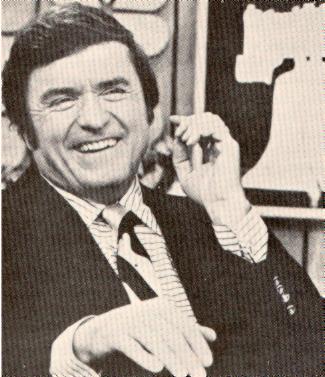|
|
|
 CNN founder Ted Turner told
Broadcasting he was signing Mike Douglas to host
a nightly entertainment news/celebrity interview hour.
"Name recognition and two decades of credibility with
American families. That's what Mike Douglas brings to
CNN," said Turner.
CNN founder Ted Turner told
Broadcasting he was signing Mike Douglas to host
a nightly entertainment news/celebrity interview hour.
"Name recognition and two decades of credibility with
American families. That's what Mike Douglas brings to
CNN," said Turner.| Mike Frontpage | Mike 2 | Mike 3 | Mike 4 | Epilog | FAQ | Guestbook |